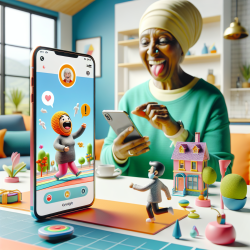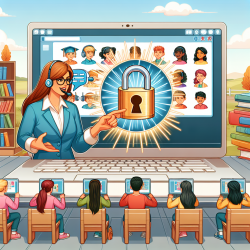The COVID-19 pandemic has significantly altered the landscape of education, prompting an abrupt transition from face-to-face to online instruction. This shift has not only impacted university students but also offers valuable insights for practitioners in online therapy services. The research article "University students experience the COVID-19 induced shift to remote instruction" provides a comprehensive analysis of these changes and highlights critical areas for improvement that can be applied to online therapy.
Understanding the Transition
The study involved 1,731 students from a research-intensive university who experienced this transition. The findings reveal that while some aspects of instructional quality declined, others improved. Notably, students reported a significant drop in engagement but an improvement in representation—how content is presented—after moving online.
Implementing Universal Design for Learning (UDL)
Universal Design for Learning (UDL) is an evidence-based framework that can enhance the quality of online instruction and therapy. It comprises three principles:
- Engagement: Employing various strategies to motivate learners.
- Representation: Presenting content in multiple ways to cater to diverse learning needs.
- Action & Expression: Allowing learners multiple means to interact with content and demonstrate their knowledge.
The research indicates that applying UDL principles can improve communication and engagement in online settings. For instance, enhancing the frequency and helpfulness of communication with students or clients can significantly boost perceived quality.
Addressing Accessibility Challenges
Accessibility remains a critical concern in online education and therapy. The study found that students eligible for disability services reported less decline in instructional quality, suggesting that targeted support can mitigate some negative impacts of the transition. Practitioners should consider implementing tools and strategies that enhance accessibility, such as closed captioning, screen readers, and adaptive technologies.
Recommendations for Practitioners
Based on the research findings, here are some actionable recommendations for improving online therapy services:
- Enhance Engagement: Incorporate interactive elements such as live sessions and feedback loops to maintain client interest and motivation.
- Diversify Representation: Use multimedia resources like videos, infographics, and interactive modules to present information effectively.
- Improve Communication: Establish clear channels for regular communication with clients, ensuring they feel supported and understood.
- Focus on Accessibility: Ensure all materials are accessible to clients with disabilities by utilizing assistive technologies and inclusive design practices.
Encouraging Further Research
The complexities uncovered by this study highlight the need for ongoing research into online instruction and therapy. Practitioners are encouraged to explore these findings further and consider how they might apply them to their practices. Continuous learning through conferences, webinars, and publications will help refine skills and adapt to evolving client needs.
To read the original research paper, please follow this link: University students experience the COVID-19 induced shift to remote instruction.










